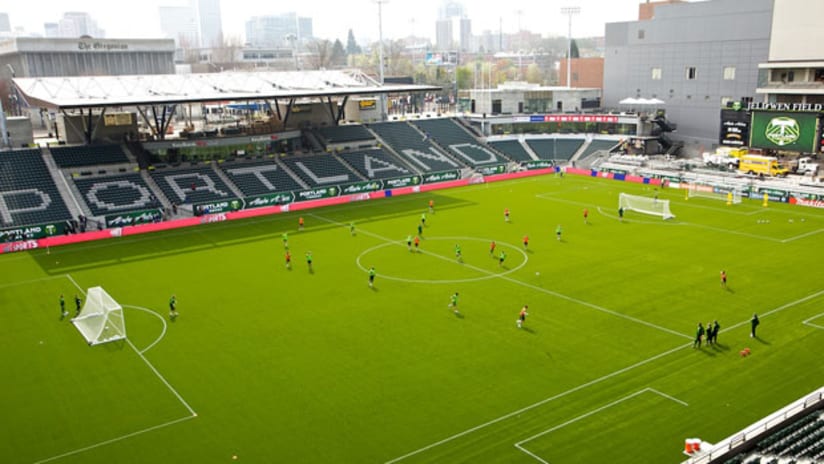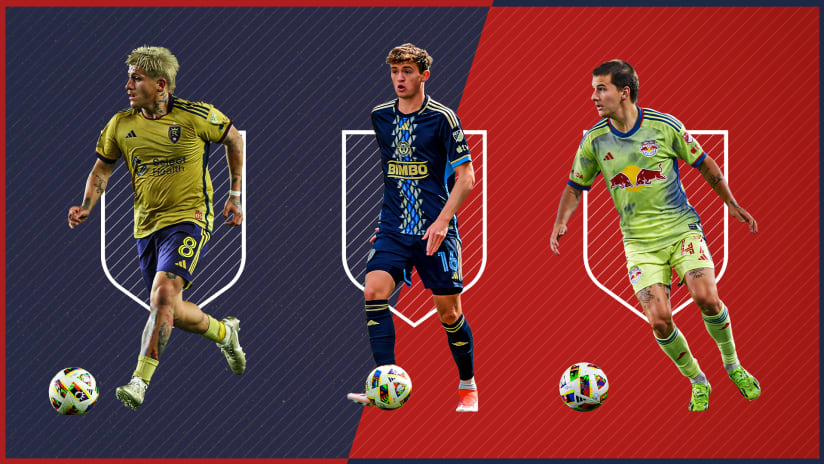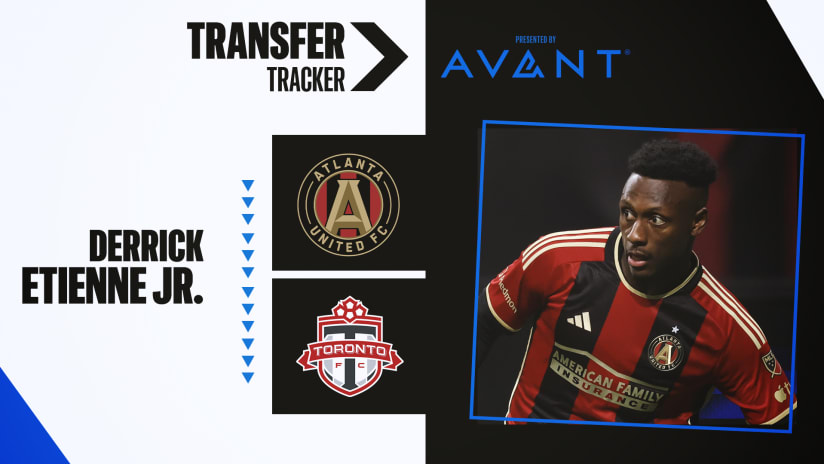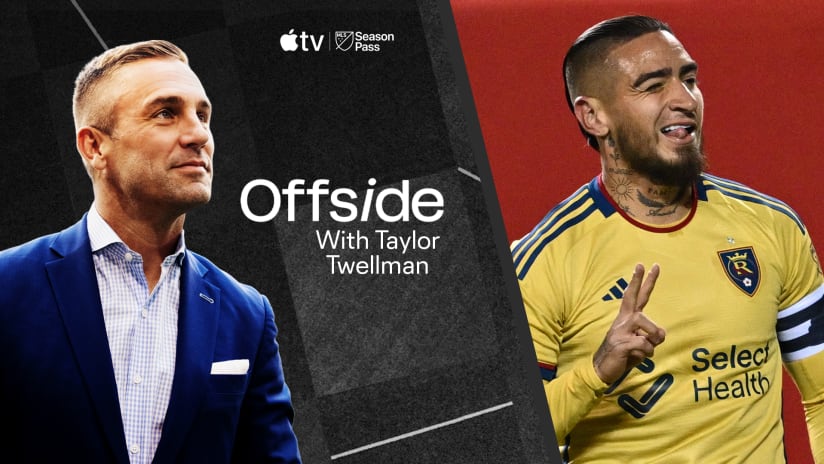PORTLAND, Ore. — The Portland Timbers return home this week looking to find the best way out of a two-game losing streak. Playing in front of the Timbers Army at JELD-WEN Field is a good place for the team to start.
Portland are 5-1 in league play at their home. And yet, over the past month, a couple of opposing coaches have publicly taken issue with JELD-WEN Field’s size and suggested that it plays into the Timbers’ favor.
“The pitch, because it’s a little bit too small, when you watch the games they played at home, it’s a little pinball,” Philadelphia Union coach Peter Nowak told local reporters prior to the May 6 game in Portland. “[The Timbers] press the other team, and we’ve got to figure out a good plan for that.”
Too small?
At 70 yards wide, 110 yards long, the pitch at JELD-WEN Field is FIFA certified and meets the governing body’s guidelines as well as those of MLS. Field dimensions are not fixed from one pitch to the next and are a bit like Major League Baseball ballparks in that sense.
The oldest club in English Premier League soccer, Stoke City, play in a stadium with exactly the same dimensions as JELD-WEN. Do other EPL teams complain that it is too small?
Less than two weeks after Nowak brought it up, Columbus Crew coach Robert Warzycha chimed in with his thoughts on Portland’s success at home.
“More than anything, it’s the [artificial] turf and the field dimensions,” Warzycha told the Columbus Dispatch. “And the way they play at home. They’re scoring on set pieces.”
For the record, Portland did score on set pieces to beat both Philadelphia and Columbus. But was the size of the field really working against the opponent?
At JELD-WEN Field, the dimensions are dictated to some degree by the configuration of a stadium footprint that dates to 1926. It also has to do with sight lines for spectators. (From the press box, it is difficult to see the near touchline with out standing up.)
From 2001 to 2010, when the Timbers were a second-tier club, the issue never came up.
“Why it’s become an issue is that it looks more compact now, the way the stadium is built," said Gavin Wilkinson, who has played and coached in Portland over the last decade and is the MLS franchise’s general manager. "This sensitivity is something new. In the last 10 years, we had Burnley, Sunderland and Coventry City. None of them ever mentioned it, never complained about it.”
Wilkinson said complaints about field dimensions seem like excuses. He also pointed out that every team tries to cull advantages from its home field. Is heat an advantage for players acclimatized to it in Houston? Does living at altitude give Colorado players an advantage?
“There is a reason Colorado has one of the biggest field sizes and they are at altitude,” Wilkinson said. “It’s not an excuse, not a reason to go there and lose, it’s just a topic for discussion. Whether the grass is a little longer or the field is a little bigger, you always want to win your home games and want your field to play to your advantage. Should I go out and tell Timbers Army not to come to the game because they give us an advantage?”
A smaller field does affect how a team can apply pressure to an opponent by restricting spaces to make them a little bit tighter.
“I think we have a fairly athletic team,” Wilkinson said. “It could be, that on a bigger field, we might have the ability to exploit that extra space. It’s all opinion.”















